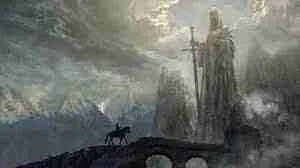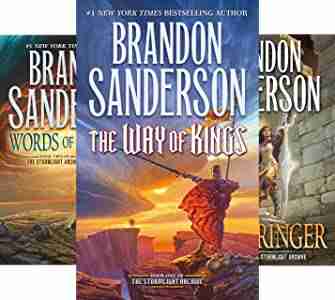
Progression Fantasy Definition

6 min read
Introduction
In Progression Fantasy, the protagonists go through a personal development arc as they grow and change in order to save the day. The story revolves around their journey, not just the destination. Progression Fantasy is a subgenre of fantasy that emphasizes the characters’ journey more than the destination. In these stories, the protagonists go through a personal development arc as they grow and change in order to save the day. Progression Fantasy is a subgenre of fantasy that emphasizes the characters’ journey more than the destination. In these stories, the protagonists go through a personal development arc as they grow and change in order to save the day. This focus on character development allows readers to see the protagonists grow and change over the course of the story, making for a more personal and engaging experience.
Define Progression Fantasy and discuss its key features.
Progression fantasy is a genre of fantasy literature that focuses on the growth and development of the main character or characters. The key features of this genre are that the characters must start out weak and powerless and then grow in strength and power over the course of the story. The story must also have a clear goal or quest for the characters to complete, and they must face challenges and obstacles along the way.
One of the most popular examples of progression fantasy is J.R.R. Tolkien’s The Lord of the Rings. In this story, the hobbit Frodo Baggins starts out as a simple, peaceful creature who knows nothing of the wider world or the magical Ring that he possesses.

However, over the course of the story he grows into a brave and heroic figure, capable of standing up to the evil forces of Sauron and destroying the Ring. The Lord of the Rings is a classic example of how a progression fantasy story can take a small, unassuming character and turn them into a hero. Another key feature of progression fantasy is that the characters must work together to achieve their goal. This is often seen in stories where there is a group of heroes who must band together to defeat a common enemy.
In The Lord of the Rings, for example, Frodo would never have been able to destroy the Ring on his own – he needed the help of his friends, Samwise Gamgee and Gandalf the wizard. This aspect of the genre highlights the importance of
The History of Progression Fantasy:
Where did the genre come from?
Fantasy is a genre of speculative fiction that typically deals with imaginative and supernatural concepts such as magical creatures, wizards, and magic. It has been around for centuries, with some of the earliest examples being The Epic of Gilgamesh and The Odyssey. The Progression Fantasy genre is a relatively new subgenre that can be traced back to the early 2000s.
Progression Fantasy is characterized by a focus on character development and personal growth, rather than on the world-building and epic adventure aspects that are common in other fantasy subgenres. The genre often features coming-of-age stories, in which the protagonists start off in a relatively low position in the world and need to work their way up through their own efforts. One of the earliest and most influential examples of Progression Fantasy is the Harry Potter series by J.K. Rowling.
The series follows the young wizard Harry Potter as he attends Hogwarts School of Witchcraft and Wizardry, makes new friends and enemies, and faces life-threatening challenges. The series is highly successful and has spawned numerous imitations.
Other notable examples of Progression Fantasy include Sarah J. Mass’s Throne of Glass series, Leigh Bardugo’s Grisha trilogy, and Patrick Rothfuss’s The Kingkiller Chronicle. The genre is extremely popular in Young Adult fiction, but there are also many examples aimed at adults.
How has it evolved over time?
The modern fantasy genre has its roots in early 19th century literature, and has since evolved into a highly popular genre of fiction. Early examples of fantasy literature include works such as Lewis Carroll’s Alice’s Adventures in Wonderland (1865) and J. R. R. Tolkien’s The Hobbit (1937).
These and other works of early fantasy were inspired by folk tales and legends, and often included elements of the supernatural. The fantasy genre became increasingly popular in the mid-20th century, with the publication of works such as The Lord of the Rings (1954-1955) and The Chronicles of Narnia (1950-1956).
Fantasy literature continued to grow in popularity in the latter half of the 20th century, with the publication of works such as The Wheel of Time (1990-2013) and A Song of Ice and Fire (1996-present). Today, fantasy is one of the most popular genres of fiction, and has been adapted for film, television, and video games. The genre has something to offer readers of all ages, and continues to evolve and grow in popularity.
Themes and Tropes in Progression Fantasy:

Progression fantasy is a subgenre of fantasy defined by its focus on the characters’ journey from humble beginnings to world-changing climax. This can be done in a number of ways, but usually includes some form of “the Chosen One” story, in which the protagonist is an unwitting pawn in a greater game who must discover their true identity and save the world from a rising evil.
What are some of the most common themes and tropes in Progression Fantasy stories?
Progression fantasy often employs classic storytelling tropes such as the underdog story, the coming-of-age story, and the hero’s journey. One of the most common themes in progression fantasy is the idea of the chosen one.
This is the story of a person who is born to save the world from an evil force, often without knowing it. They must discover their true identity and destiny, and often must overcome great obstacles to do so. This theme is often used to add a sense of urgency and drama to the story, as the fate of the world hangs in the balance. Another common theme in progression fantasy is the idea of the hero’s journey. This is the story of a person who must leave their home and comfort zone to embark on a dangerous journey in order to save the world.
This journey is often fraught with danger and challenges, but the hero perseveres and grows in strength and wisdom as a result. This story arc often mirrors the classic monomyth of Joseph Campbell’s Hero with a Thousand Faces, in which the hero undergoes a series of trials.
Conclusion
A Progression Fantasy is a story in which the characters spend the majority of their time going from one place to another, usually in pursuit of some goal. The journey is often more important than the destination, and the characters usually learn and grow along the way. The journey is more important than the destination in a Progression Fantasy. The characters learn and grow along the way in pursuit of some goal.


